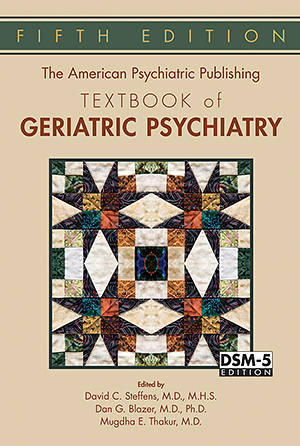Chapter 9.Depressive Disorders
Sections
Excerpt
Questions regarding depression in old age are frequently posed: Do persons become more depressed as they grow older? Does depression become more difficult to treat with increased age? Is depression more difficult to identify in the older adult? The answers to these questions rest in part with the definition of late-life depression. Depression in late life is not a unitary construct. Depending on how depression is defined, the answers to questions regarding late-life depression vary.
Access content
To read the fulltext, please use one of the options below to sign in or purchase access.- Personal login
- Institutional Login
- Sign in via OpenAthens
- Register for access
-
Please login/register if you wish to pair your device and check access availability.
Not a subscriber?
PsychiatryOnline subscription options offer access to the DSM-5 library, books, journals, CME, and patient resources. This all-in-one virtual library provides psychiatrists and mental health professionals with key resources for diagnosis, treatment, research, and professional development.
Need more help? PsychiatryOnline Customer Service may be reached by emailing [email protected] or by calling 800-368-5777 (in the U.S.) or 703-907-7322 (outside the U.S.).



